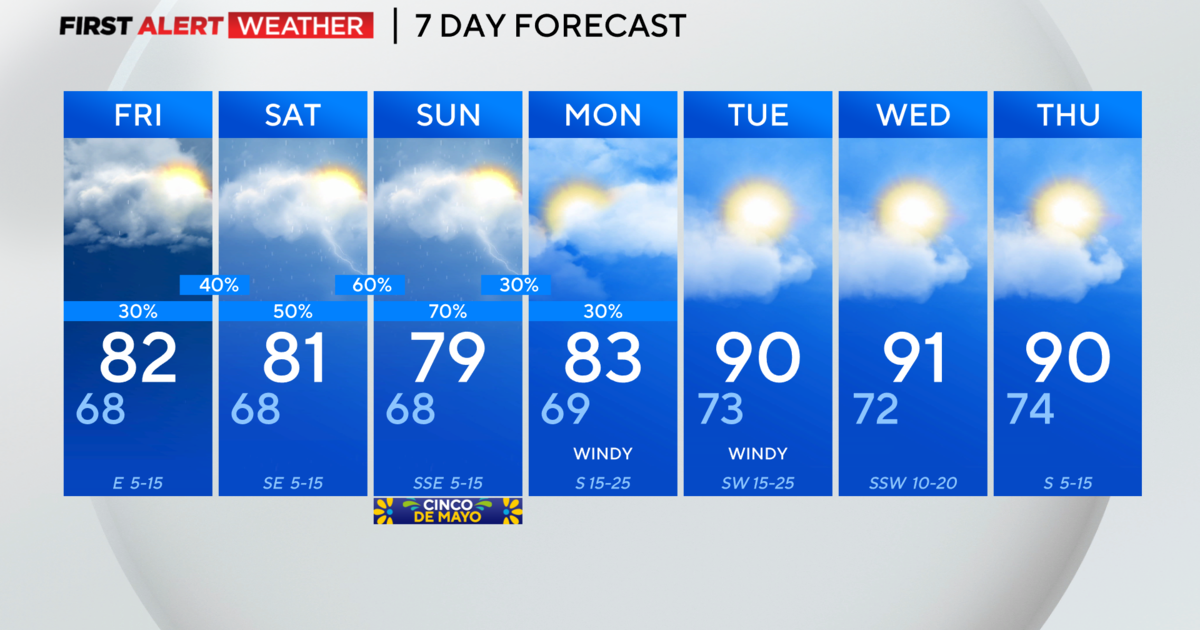This North Texas family is on a mission to spread Type 1 diabetes awareness
NORTH TEXAS – When people hear the word "diabetes," they often associate it with obesity and poor eating habits. But there's a less common form of diabetes that affects nearly two million Americans.
It was once referred to as juvenile diabetes but is now known as Type 1 diabetes – or T1D.
In people with Type 1 diabetes – through no fault of their own – the pancreas stops producing insulin, usually because the body's own immune system attacks it.
It's a chronic condition that needs to be managed 24 hours a day, seven days a week – and there is no cure.
One local family is now all too familiar with this life-altering disease.
Life for Andy and Amy Mathiesen was already busy when their then 2-year-old daughter, Hannah, began developing flu-like symptoms: she was overly tired and very thirsty, sweaty and clammy.
Visits to the pediatrician and even the ER were unproductive.
It wasn't until she had to be taken by ambulance to the hospital that they discovered Hannah's body was no longer producing insulin.
She had Type 1 diabetes.
"She was practically unconscious, right? And that's how they took her to the hospital. And her blood sugar was, you know, 1200. And to give you a sense of a normal person's blood sugar, at any given time, it should be like 100, and so it knocked you out," says Andy Mathiesen.
And to make things even more challenging, Hannah also has Down syndrome.
She's high-functioning, but her parents know, she'll never be able to manage her disease alone.
"Medical is the part that ... let's just say we pray a lot for wisdom for guidance. We have seen a lot of miracles with Hannah," says Amy Mathiesen. "So there are a lot of blessings in disguise, but Type 1 is one of those things where, I mean, it is no joke. It is life and death every day. And so it does take an army."
Now 17, Hannah plays basketball, loves to cook, and she even helps run the coffee shop at Mansfield High School where she's a sophomore.
However, the risks associated with Type 1 diabetes also mean she needs a full-time nurse at school to try to keep her blood sugar levels within normal limits.
"You have to worry about what happens when your blood sugar goes too low," says Andy Mathiesen. "And that's just as dangerous. That's how you can become disoriented. You can fall, you can pass out, you can faint. You can seizure. Lots of really bad things happen when you go the other way."
As Andy Mathiesen now knows all too well.
Five years ago – at the age of 41 – he was also diagnosed with T1D.
"I just had a really restless night; I couldn't sleep. I just didn't feel well at all," says Andy Mathiesen. "And I felt like I had some of the symptoms that I would have said Hannah had. And so I took her blood meter that morning. It was a Sunday morning and I checked my blood sugar and what came back was 236. And I immediately knew what that meant."
It's not unheard of, but it's certainly uncommon for someone of that age to be diagnosed with a disease that typically occurs in childhood.
But as with most things, the Mathiesens try to look at it from the bright side.
"The only blessing for it was we knew how to handle it. I knew what to do – how to do it," says Andy Mathiesen. "And I remember one of the first things she said was, 'Oh, Dad. You're my buddy now, right?'"
It's now become their mission to educate others about T1D, and to try to help those worried about their own possible diagnosis.
"Nobody can tell you what it is that triggers it. What can you do to prevent it, right? How do you not get it?," says Andy Mathiesen. "It wasn't bad lifestyle choices. It wasn't an accident. It wasn't trauma, it wasn't an illness. it's just really one of those strange things that you can't pinpoint it. It just shows up one day. And, at least as of now, because there's no cure, it never goes away. It's 24/7. And that's the tough part about it."
The Mathiesens are now advocating for pediatricians to regularly test the blood sugars of their young patients. It takes only seconds, and they believe it could save lives.




